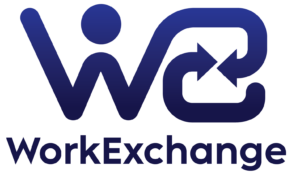The Intricacies of Insurance Back Office Operations
Data Management
In the insurance industry, data is king. From customer information to policy details, claims history, and regulatory compliance records, the volume of data handled by insurance companies is staggering. The challenge lies not just in storing this data but in managing it accurately and securely. Any errors or breaches can have significant repercussions, including financial losses and damage to the company’s reputation. Implementing robust data management systems and protocols is crucial for ensuring data integrity and security.
Operational Efficiency
Insurance back office operations involve a myriad of sophisticated processes, from underwriting and policy issuance to claims processing and renewals. Maintaining operational efficiency amidst these complex tasks is a constant challenge. Inefficient processes can lead to delays, errors, and increased operational costs. Leveraging technology and automation can help streamline these processes, reducing the burden on human resources and enhancing overall efficiency.
Regulatory Compliance
The insurance industry is heavily regulated, with standards and regulations that are continuously evolving. Staying compliant with these regulations requires constant monitoring and updates to processes and systems. Non-compliance can result in hefty fines and legal issues, further stressing the importance of robust compliance management systems. Regular training and updates for staff on regulatory changes can also help ensure compliance.
Domain Expertise
Quality control in insurance processes demands domain expertise. From understanding the nuances of different insurance products to staying updated with industry trends and regulations, domain expertise is essential for ensuring accuracy and quality. Investing in continuous training and development for staff can help build and maintain the necessary expertise within the organization.
Common Challenges in Insurance Back Office Management
Personal Line Renewals
One of the most common challenges in insurance back office management is handling personal line renewals, particularly for auto and home policies. These renewals require meticulous attention to detail and timely processing to ensure customer satisfaction and retention. Automating the renewal process can help streamline operations, reduce errors, and free up resources for more strategic tasks.
Claims Processing
Efficient claims processing is crucial for maintaining customer trust and satisfaction. However, it is often fraught with challenges, including verifying claims, assessing damages, and ensuring timely payouts. Implementing integrated claims management systems can help streamline the process, improve accuracy, and enhance customer experience.
Underwriting
Underwriting is another critical area that poses significant challenges. It requires a deep understanding of risk assessment and pricing strategies. Leveraging advanced analytics and AI can help improve underwriting accuracy and efficiency, reducing the time and resources required for manual assessments.
Overcoming Challenges with Technology and Expertise
Leveraging Technology
Technology plays a pivotal role in overcoming the challenges of insurance back office management. From data management and process automation to compliance monitoring and customer service, technology can enhance efficiency, accuracy, and security. Investing in advanced software solutions and integrating them with existing systems can provide a seamless and efficient back office operation.
Investing in Expertise
While technology is crucial, the human element cannot be overlooked. Investing in continuous training and development for staff can help build and maintain the necessary domain expertise. This combination of technology and human expertise can create a resilient and efficient back office operation that can adapt to changing industry demands and regulations.
Conclusion
Insurance back office management is undoubtedly complex and challenging, but with the right strategies and tools, these challenges can be effectively managed. By leveraging technology, investing in domain expertise, and focusing on continuous improvement, insurance companies can enhance their back office operations, ensuring accuracy, efficiency, and compliance. This, in turn, allows them to focus on their primary business objectives and deliver exceptional service to their customers.
Ready to transform your back office operations? Learn more about how our solutions can help you streamline processes, enhance efficiency, and stay compliant. Contact us today to get started!







